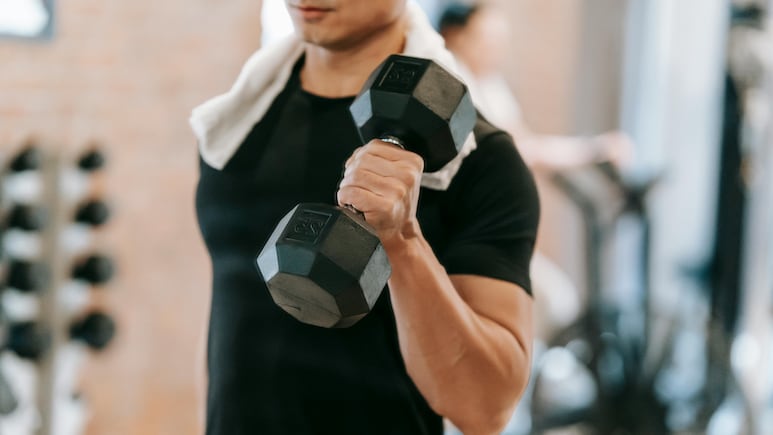
Walk into any gym and you will definitely encounter someone benching diligently, clocking their steps, maybe even filming the perfect deadlift yet wondering why the mirror refuses to cooperate. Here's the tough-love truth: training is the spark; nutrition is the fuel and building material. Without enough total energy, sufficient high-quality protein, carbohydrate to refill glycogen and key micronutrients, the body prioritises survival over muscle building. In simple words, you cannot out-train a nutrition gap. This distils what the strongest research says about why diet can bottleneck hypertrophy and foods can fix it. Skeletal muscle grows when mechanical tension (you lifting), adequate nutrition and recovery (sleep) line up.
Meta-analyses show that, compared with lifting alone, adding more protein meaningfully improves fat-free mass and strength. Another analysis suggests most lifters do best around 1.6–2.2 g protein per kg body weight per day, distributed across meals while lower intakes underperform. Along with this, calories matter too. Carbohydrate supports training quality by topping up muscle glycogen and blunting exercise-induced rise in stress hormones. Finally, micronutrients and bioactives influence performance and adaptation. Deficits in iron, vitamin D, calcium, zinc or magnesium can drag down training output, recovery or muscle function even when macros look fine.
Can certain foods help you gain muscle?
Think of the foods below as common Indian staples that close the biggest nutrient gaps. If your diet consistently lacks several of these, you may be handicapping growth even with perfect programming.
Foods whose absence often stunts muscle growth
1. Milk and dahi
Dairy offers fast-absorbing whey and slower casein which is a combo that repeatedly supports overnight recovery. Also provides calcium for contraction and bone support. Aim for 250–500 ml milk or 1–2 katoris dahi daily, plain and unsweetened.
2. Eggs
Eggs are a high-quality protein with a bioavailable vitamin D, B-vitamins and choline for neuromuscular function. Consume 2 whole eggs and add about 12–13 g protein plus micronutrients to your diet.
3. Soy
Soy is a complete plant protein that can match animal proteins when dosed properly. Practically 100 grams of tofu or 25–30grams of textured soy chunks in a meal is a great addition to your daily diet.
4. Pulses and dals
Pulses improve overall protein quality. Combining it with cereals such as roti or rice is even better! The fibre helps gut health, too. A classic dal-chawal or rajma-chawal combo remains a smart muscle combo. Just scale portions to hit protein targets.
5. Peanuts and groundnut
These are affordable protein sources that provide energy density for those who struggle to eat enough calories and are helpful between meals to curb hunger. A small handful (30 grams) adds about 7 grams protein plus calories to support a surplus.
6. Fish
Fatty fish is high-quality protein and abundant in omega-3 fatty acids that helps support recovery from inflammation. Practically adding fish to 2 meals of the week is a great way to add it to your diet.
7. Chicken
Chicken is a dense protein with good creatine per serving (naturally occurring) that supports high-intensity performance. Having 100–150 grams cooked chicken in a main meal is great!
8. Leafy greens & citrus
Iron from the greens supports oxygen delivery while vitamin C aids collagen and improves plant-iron absorption, both of which are critical for training capacity.
If your programme is solid but progress is slow, audit your protein total and distribution, daily calories, carbohydrate on training days, and key micronutrients. Often, fixing those with ordinary foods is the difference between “no gains” and steady progress.
Disclaimer: This content including advice provides generic information only. It is in no way a substitute for a qualified medical opinion. Always consult a specialist or your doctor for more information. NDTV does not claim responsibility for this information.
References
- Morton RW, Murphy KT, McKellar SR, et al. A systematic review, meta-analysis and meta-regression of the effect of protein supplementation on resistance training–induced gains in muscle mass and strength. Br J Sports Med. 2018.
- Phillips SM. A brief review of critical processes in exercise-induced muscular hypertrophy. Sports Med. 2016.
- Burke LM, Hawley JA, Wong SH, Jeukendrup AE. Carbohydrates for training and competition. J Sports Sci. 2011.
- Haas JD, Brownlie T. Iron deficiency and reduced work capacity: a critical review. Am J Clin Nutr. 2001.
- Girgis CM, Clifton-Bligh RJ, Hamrick MW, Holick MF, Gunton JE. The roles of vitamin D in skeletal muscle. Endocr Rev. 2013.
- Lukaski HC. Vitamin and mineral status: effects on physical performance. Nutrition. 2004.
- Indian Council of Medical Research–National Institute of Nutrition (ICMR-NIN). Dietary Guidelines for Indians. 2024.
Track Latest News Live on NDTV.com and get news updates from India and around the world

